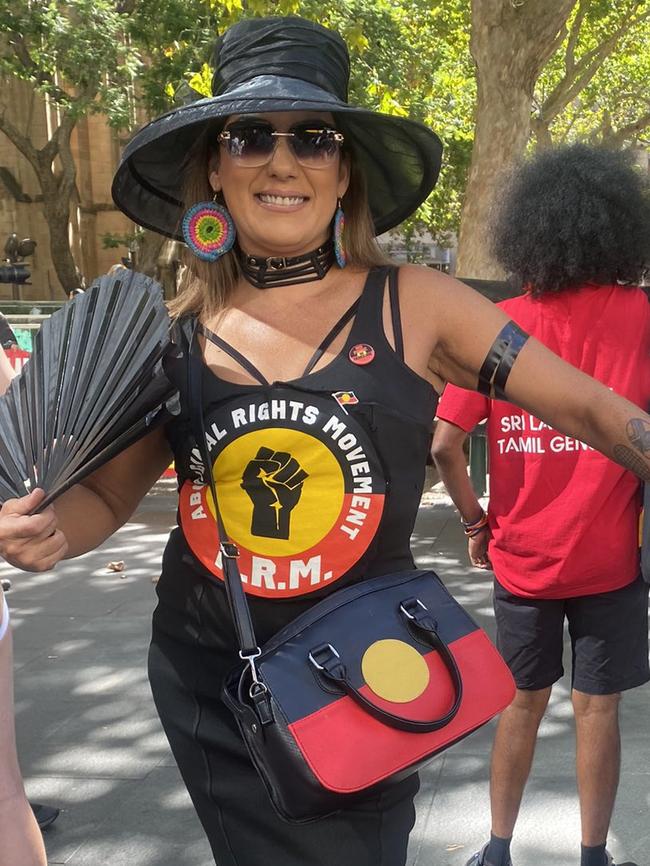In the pursuit of fully representative democracy, we can learn a lot from Lidia Thorpe
I will not hear a bad word said about Lidia Thorpe. She is what you get when you insist that institutions must mirror the full tapestry of our society.

She has had varying interactions with police, like many Australians. She has attended places, late at night, offering “high-end” adult entertainment, again like many others. She has shouted at men at 3am, even accusing them of having small penises. She has cheered at news of a fire at Old Parliament House. She has called for war on Australia Day. She has disrupted a Sydney Gay and Lesbian Mardi Gras float by lying down in front of it. She has snickered to a co-worker who has a disabled child that “at least I keep my legs shut”. She has complained she has been “white banned” by media outlets, a comment some might find a touch racist if it weren’t for Lidia explaining: “We cannot be racist to white people. White people don’t fall into that category,”
None is a reason to demand she leave the Senate. On the contrary, for all those social progressives who demand that every high-end workplace – from parliament and cabinet to the judiciary and boardrooms – reflect modern Australia, you actually must have a Lidia or two in the Senate. After all, if these institutions are to be regarded as legitimate only if they properly represent all of Australia, Lidia is the ticket to legitimacy. Given Australia’s love of larrikins and colourful history, how could you have a properly representative body without someone such as Lidia?
Note, these progressive types want all of the community’s subgroups reflected only in places where power is wielded. I can’t recall anyone ever saying that plumbers should reflect society, or bricklayers, or garbage collectors.
Putting that aside, let’s explore a little more our 21st-century commitment to the idea that the institutions of power should properly reflect the society they govern. When it comes to women in parliament, especially, both houses should represent all sorts of women. There must be a cohort of mean girls, a group of conscientious goody-two-shoes, some science nerds, a few arty types, some mothers, gay women, straight, bi-sexual and trans. And some offensive, graceless, shouty, abusive and rather silly women – just like Thorpe.

Indeed, if we were serious about this idea of parliament representing the broader community, we would realise there has been entirely too much focus on concepts such as intellect and integrity. Parliament should have not just its proportionate share of all society’s religions, occupations and mindsets but also its proportionate share of crooks and deviants. And not just accidentally, either – we should plan to have people such as Milton Orkopoulos in parliament, rather than discover after the event he ticked a few diversity boxes.
OK, you got me. This is ridiculous. The advocates of a representative parliament didn’t actually mean everyone gets represented. Only those subgroups they think worthy of special representation. People like us, progressives might say. It’s here that problems arise.
As soon as you think admission to parliament, or any other institution, should be determined, even partly, by a candidate’s group membership rather than their individual skills you run into nasty questions of definition and selection. Which groups are special, which ones aren’t, and why?
More important, you run headlong into the central questions of representative democracy. Character should count, not markers of identity such as race or sex.

The argument was made powerfully by Noel Pearson in a passage quoted with approval by Megan Davis and George Williams in their 2021 book, Everything You Need to Know about the Uluru Statement from the Heart: “As long as the allowance of racial discrimination remains in our Constitution, it continues, in both subtle and unsubtle ways, to affect our relationships with each other. Though it has historically hurt my people more than others, racial categorisations dehumanise us all. It dehumanises us because we are each individuals, and we should be judged as individuals. We should be rewarded on our merits and assisted in our needs. Race should not matter.”
I could not have said it better myself. While it would seem Pearson, Davis and Williams may no longer hold those views, those views were correct then and remain correct. What is true of race is also true of sex, and of the many other favoured characteristics of identity politics. What is offensive about all these forms of special pleading is that they judge people as members of one or other collective group, not as individuals.


The other fallacy propagated by those who say our institutions have to look like the population at large is the argument that unless one has experienced the evils of racism, sexism or any other favoured ism, one cannot represent those who have. This spawns arguments about the need to “walk in the shoes” of disadvantaged groups before you can understand them, help them or represent them.
These arguments are fatuous. Does a doctor need to have had a disease to understand or treat it?
The first cousin of these arguments is the cultural appropriation fallacy. You know how this goes: only gay men can play gay characters in movies, only ethnic women can write about women of the same ethnicity.
Lucky Shakespeare hadn’t heard of these theories or, if he had, happily he ignored them. We would have lost most of the world’s great literature if the cultural appropriators had their way. At bottom of all this madness is a common flaw. They treat us primarily as members of a group, not as individuals.
Back to Thorpe. She was democratically elected, if under a Greens flag she now rejects, and so we have deliberately given her a platform. Whether she deserves it, and whether she should keep it, will be a matter for voters at a future election. One thing is certain, though – and this is the challenge for those who can think only through a collective prism.
Thorpe should be judged for her own individual actions, behaviour and policies. She should not be judged, favourably or unfavourably, because she is black or female.








I will not hear a bad word said about Lidia Thorpe. Not one single word. Lidia is what you get when you insist that institutions must mirror the full tapestry of our society. Thorpe is our diversity champion of the year – she’s female, she’s black (or, as she spells it, Blak), she has dated a bikie – and she has behaved badly.